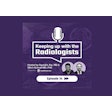Being connected to the workplace through smart devices leads to job burnout, according to a survey published by the American Society of Radiologic Technologists (ASRT) in Radiologic Technology.
Researchers from Midwestern State University in Wichita Falls, TX, surveyed more than 975 educators in radiologic science, respiratory care, nursing, and athletic training about their level of stress and burnout as a result of excessive connectivity to the workplace via smart devices. Each respondent also completed a health assessment (Radiol Technol, November/December 2014, Vol. 86:2, pp. 144-154).
According to the survey results, 60.7% of respondents felt connected to their workplace 24 hours a day, seven days a week, with 18.8% reporting that they never ignore work-related communications received on their smart devices during nonworking hours.
To assess the health effects of smart device use, the researchers cross-referenced health assessment data from survey participants with the national averages of the Maslach Burnout Inventory, which measures burnout in three categories: emotional exhaustion, depersonalization, and lack of personal accomplishment.
In the category of emotional exhaustion, the higher the score, the higher the burnout. Survey participants scored emotional exhaustion at 30.3, compared with a national average of 21.2.
In the personal accomplishment category, lower scores indicate a higher degree of burnout. The survey participants showed a greater feeling of competence and successful achievement, with an average score of 45.1 versus the national average of 33.5.
"Our research shows that it's very easy to slip into the mode of answering work-related emails at all hours, and it's not good for one's life balance or creativity on either side of the equation," said study co-author James Johnston, PhD, in a statement released by ASRT.



















